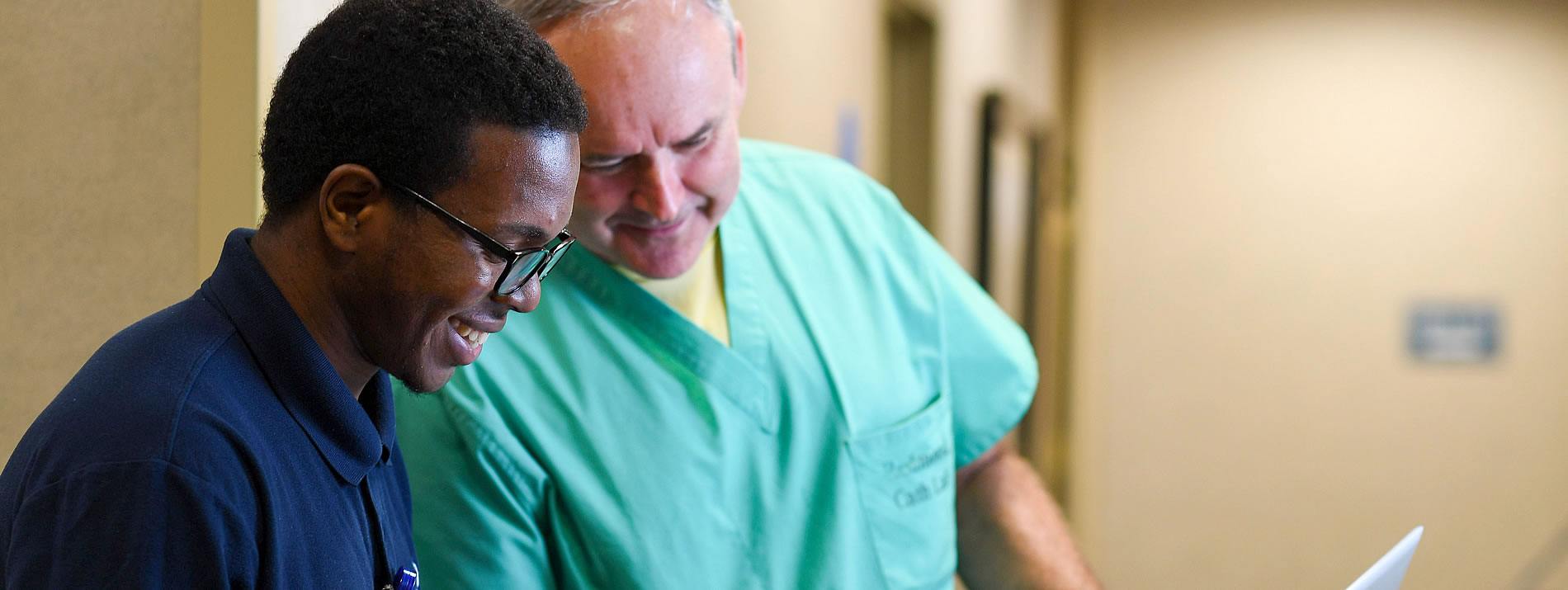So you’ve come to the conclusion that medicine is for you. Now, not later, is the time to begin this career path. Even applying to medical school takes some serious planning. There’s a lot to juggle, but you can absolutely meet all of the medical school prerequisites while completing your undergraduate education.
Ready to get started? Consider this your go-to guide for completing your medical school applications.
Standard medical school prerequisites every student needs to complete
While institutions in the state of Texas and osteopathic medical schools use their own application systems, most medical students apply to MD programs using the American Medical College Application Service (AMCAS). This standardized application allows students to easily apply to numerous schools without having to enter the same information multiple times — every medical school evaluates the same requirements.
1. Official transcripts that include required coursework
You should be mindful of required medical school courses early in your college education. Students tend to find the Medical School Admission Requirements (MSAR) website to be very helpful in determining school-specific requirements. And the Association of American Medical Colleges (AAMC) notes you’ll be responsible for completing these courses at a bare minimum:
- One year of biology
- One year of general chemistry
- One year of organic chemistry
- One year of English
You’ll enter information about your coursework, GPA and credits when filling out the AMCAS application. It probably goes without saying that medical schools care about good grades. Students who started medical school in fall 2020 had a mean overall GPA and mean science GPA of about 3.7. You also need to include official copies of transcripts.
2. MCAT scores
Of all the prerequisites for medical school, the Medical College Admission Test (MCAT) is one of the most important. It’s a rigorous exam that features four sections. Some medical schools won’t even consider candidates who score below a certain threshold.
Many students aim to take the test during the fall of their junior year to allow enough time to retake it if needed. So what does a strong showing look like? According to the AAMC, the mean score for students accepted to medical school in 2020 was 512.
3. Medically related experience
Most students don’t acquire true hands-on clinical experience with patients until medical school. Gaining experience as an emergency medical technician (EMT) is a notable exception.
What medical schools do look for is consistent clinical exposure that involves working with patients. A few common examples are shadowing physicians and volunteering with hospice. You can even find opportunities through your school’s pre-med office. Berry College, for example, has a pre-health advisor who provides four years of hands-on guidance for medical school-bound students.
4. Other activities and experiences
Medical schools look for candidates who have a breadth of experiences, including those outside of medicine. They’re particularly interested in activities that demonstrate one or more of the 15 core competencies outlined by the AAMC.
You can also set yourself apart from the pack if you take advantage of special research opportunities. That said, you’ll want to bear in mind the time commitment and your overall academic load.
5. Personal statement
Your personal statement matters significantly to admissions committees. Try thinking of it as an opportunity to put your experiences into context, especially if you went through something that warrants addressing. Explain why particular points on your resume are important and how they helped shape you.
The AAMC provides some tips for submitting your essay. Make sure that you’ve already drafted a copy that’s been proofread to make sure there aren’t any typos or other errors before entering it into the application field.
6. Letters of recommendation
There are three different types of evaluations: individual letters, a committee letter and a letter packet. You should investigate individual medical school requirements to determine whether a specific combination is required.
You’ll likely have at least a few individual letters. These should be written only by professors, physicians, mentors or supervisors who know you very well and can provide great recommendations.
It’s in your best interest to touch base with letter writers early and often to avoid unnecessary delays because interviews are offered on a rolling basis. Admissions committees become increasingly selective as the summer passes.
The final phase
Many medical schools automatically send secondary applications and additional essay questions to every candidate after they’ve submitted their AMCAS application. Take your time with these essays and make sure your writing stays focused on the topic. You can look through some past essay prompts to prepare.
You should feel proud if you’re extended one or more interview offers. That said, you should spend some time preparing by talking through some practice questions with a mentor, such as your pre-health advisor, or trusted friend. If you’re lucky enough to attend a college that offers mock interviews, take advantage of that opportunity to practice. And don’t forget to come equipped with questions of your own.
Finally, do your best to relax while you wait to hear back from medical schools. Getting to the end of the application process itself is an accomplishment.
Plan your path to medical school
No current medical student would say their path was easy. It takes hard work to complete all the prerequisites for medical school, hold your own during an interview and ultimately secure a seat. If you have the drive and dedication, though, you could be equally successful.
It’s especially important to build a good foundation with a great undergraduate education. Choosing a program that focuses on essential science courses provides mentorship opportunities, and emphasizes key professional skills, can make a big difference as you pursue your goal of becoming a physician. Find out how a degree from Berry College could help set you up for success by visiting our Pre-Medical Studies page.



